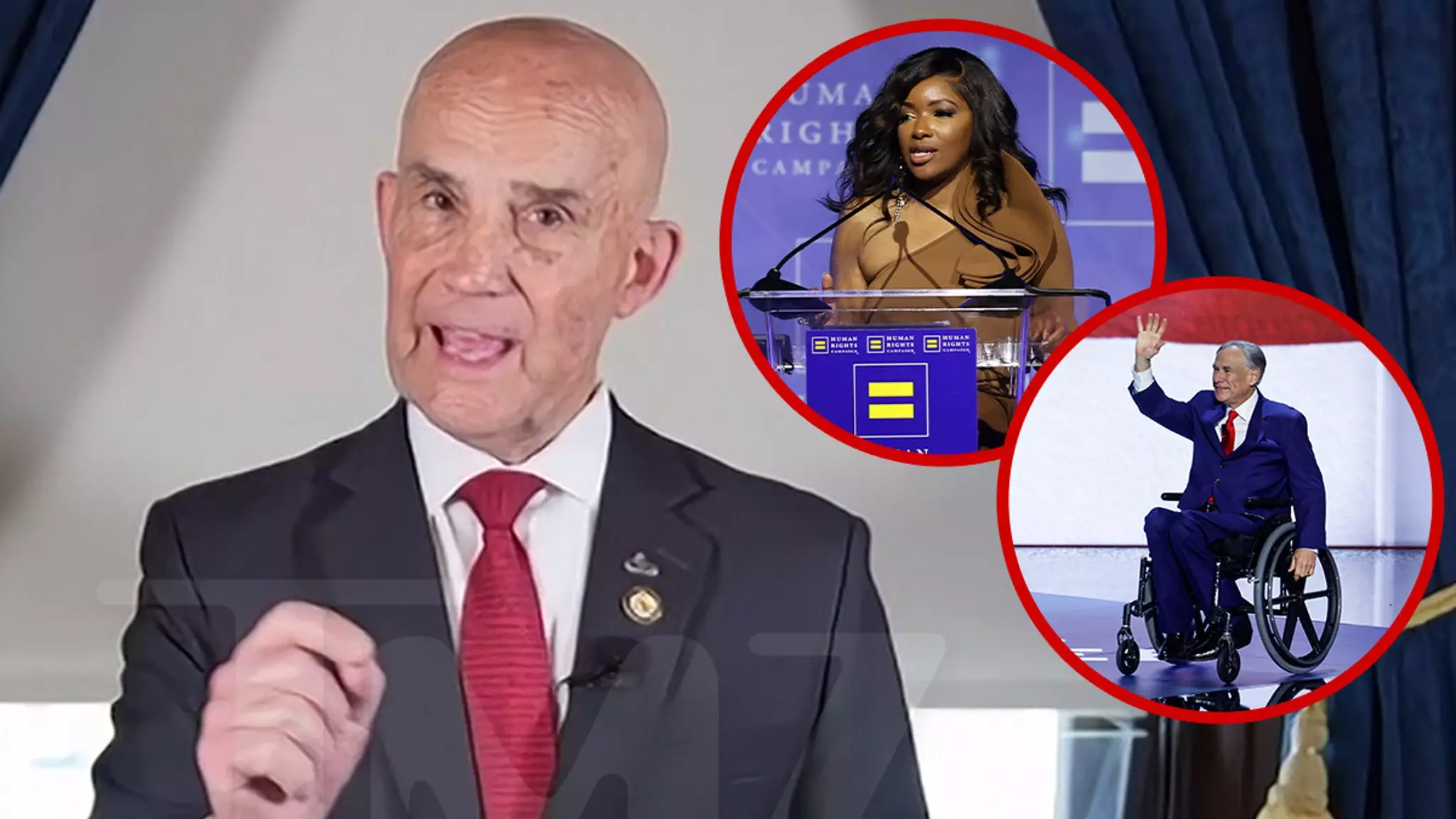In a world where political discourse has increasingly turned into a spectacle, recent remarks by Congresswoman Jasmine Crockett about Texas Governor Greg Abbott have ignited a firestorm of criticism, particularly from Congressman Keith Self. By referring to Abbott as “Governor Hot Wheels,” Crockett inadvertently stumbled into the treacherous waters of political correctness and humor—or what some see as a lack thereof. In today’s political landscape, humor can easily turn to hubris, reflecting a troubling trend where personal attacks masquerade as political discourse.
On the surface, Self’s outrage appears justifiable; after all, mocking someone’s physical condition can come off as insensitive. However, his selective indignation raises eyebrows. When confronted with President Trump’s infamous mockery of a disabled reporter, Self quickly pivoted, emphasizing his desire to focus solely on Crockett’s comments. This glaring inconsistency reveals a troubling double standard within political etiquette: certain figures are permitted to engage in ridicule while others are vilified for comparable acts.
The Irony of Self-Defense
Self’s statement that he might prefer Congress to refrain from censuring Crockett because she is “bad for the Democratic Party” reveals a deeper irony. Here, he aligns himself more as a strategist than a defender of ethical political behavior. While it’s not uncommon for politicians to benefit from their opponents’ missteps, it serves to underline how political motives frequently overshadow moral considerations.
Moreover, Self’s argument that there is a distinction between self-deprecation and tearing someone down lacks nuance. Abbott himself has made jokes about his own condition, which seems to give him immunity from critique about how others discuss his disability. The unspoken implication is clear: if you can make jokes about your disability, those outside that circle should tread lightly. Yet, this assumes that humor is a one-way street, suggesting that the disabled can only laugh at themselves while others keep quiet.
Crockett’s Defense: Beyond the Laughter
Crockett has been steadfast in her defense, insisting that her moniker was not a comment on Abbott’s disability but, rather, a critique of his policies. By emphasizing the unbalance caused by Abbott’s actions, particularly relating to vulnerable immigrant communities, she attempts to redirect the focus away from her punchline to serious issues that warrant attention. Her refusal to apologize reveals a conviction that political discourse needs to be unfiltered, even if that bluntness lands her in hot water. However, it raises a critical question: when does political critique cross the line into personal attack?
While humor can serve as a catalyst for change, it can also become a weapon. Political figures must balance the need for spirited debate with the responsibility to foster a more inclusive environment. Crockett’s controversial comment highlights that the art of wit in politics can quickly become a tightrope walk, forcing politicians to constantly assess the potential fallout of their words.
In this current moment, both Self and Crockett represent polarizing forces within a larger narrative about ethics, humor, and the dynamics of ridicule in political discourse. The lines are blurry, and the stakes are high—both for politicians and the public who watches them. In a realm where sharp tongues are often sharper than policy proposals, it becomes crucial to navigate these waters judiciously.

